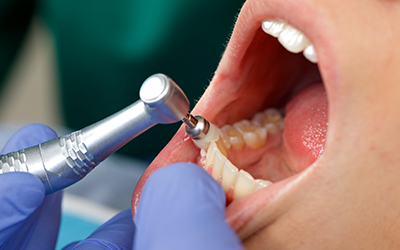At Meadows Family Dentistry in Castle Rock, we know that healthy gums are the foundation of a confident, radiant smile. Our advanced dental care in periodontics focuses on preventing, diagnosing, and treating gum diseases to maintain your overall oral health. Whether you’re dealing with early-stage gum inflammation or advanced periodontal issues, our team is here to provide personalized solutions and compassionate care to keep your smile healthy for years to come.
What Is Periodontics?
Periodontics is a specialized branch of dentistry that addresses the structures supporting your teeth, including your gums, bones, and ligaments. Periodontal care is essential for preventing and managing gum diseases like gingivitis and periodontitis, which, if left untreated, can lead to tooth loss and other complications.
At Meadows Family Dentistry, we offer advanced dental care to treat a variety of periodontal issues, including:
- Gum Disease: From mild gingivitis to severe periodontitis.
- Gum Recession: Protecting and restoring exposed tooth roots.
- Bone Loss: Managing the effects of advanced gum disease.
- Dental Implants: Restoring function and aesthetics for missing teeth.
Our advanced dentistry ensures your gum health is a priority, supporting the longevity of your smile.
Recognizing the Signs of Gum Disease
Gum disease often progresses silently, but early detection is key to effective treatment. Common symptoms include:
- Red, swollen, or tender gums
- Bleeding gums during brushing or flossing
- Persistent bad breath or a bad taste in your mouth
- Gum recession or teeth appearing longer
- Loose teeth or changes in your bite
If you’re experiencing any of these signs, schedule an appointment with our Castle Rock dentist for a thorough evaluation and personalized treatment plan.
Advanced Dental Care for Periodontal Health
At Meadows Family Dentistry, we use the latest techniques and technologies to deliver advanced dental care in Castle Rock for periodontal health. Our comprehensive treatments include:
This deep-cleaning procedure removes plaque and tartar buildup below the gumline, reducing inflammation and promoting gum reattachment. It’s a cornerstone of gum disease care and an effective method for managing early to moderate periodontitis.
Gum recession can expose the roots of your teeth, leading to sensitivity and an increased risk of decay. Our advanced dentistry solutions include gum grafting techniques to restore your gumline and protect your oral health.
Missing teeth can lead to bone loss and affect the health of your gums. Dental implants are a permanent solution that restores function and aesthetics while preserving the underlying bone structure. Our periodontics team ensures the success of your implants through comprehensive gum and bone health evaluations.
We offer cutting-edge laser treatments to target infected gum tissue and promote healing with minimal discomfort. This non-invasive approach to gum disease care is both effective and comfortable for our patients.
How Periodontal Health Impacts Overall Well-Being
Your gum health plays a vital role in your overall health. Studies have shown links between gum disease and systemic conditions such as heart disease, diabetes, and stroke. By prioritizing your periodontal care with our advanced dental care, you’re not only protecting your smile but also supporting your overall well-being.
Preventing gum disease starts with a consistent oral hygiene routine and regular visits to your Castle Rock dentist. Here are some tips to maintain your gum health:
- Brush your teeth twice a day with fluoride toothpaste.
- Floss daily to remove plaque and food particles between teeth.
- Use an antimicrobial mouthwash to reduce bacteria in your mouth.
- Visit our dental clinic every six months for cleanings and check-ups.
Our team will work with you to develop a personalized plan to keep your gums healthy and your smile vibrant.
Schedule Your Periodontal Consultation Today
If you’re concerned about your gum health or experiencing symptoms of gum disease, don’t wait to seek care. Contact Meadows Family Dentistry in Castle Rock to schedule a consultation. With our advanced dental care in Castle Rock, you can trust us to protect your smile and support your overall health.
Call us today to take the first step toward healthier gums with expert periodontics and advanced dentistry solutions!

















 (303) 660-5576
(303) 660-5576 smile@meadowsfamilydentistry.com
smile@meadowsfamilydentistry.com 3740 Dacoro Lane, Suite #115
3740 Dacoro Lane, Suite #115